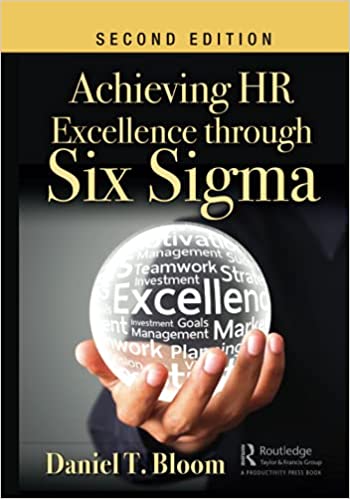Although world-class firms like GE and Motorola have relied on Six Sigma to build their performance cultures, these processes are all too often left out of human resources (HR) functions. This lack of Six Sigma principles is even more surprising because preventing errors and improving productivity are so critical to the people management processes of hiring, retention, appraisal, and development.
From the history and evolution of the Total Quality movement to initiatives for introducing a Six Sigma continuous process improvement strategy in your HR department, Achieving HR Excellence through Six Sigma, Second Edition introduces a new way to envision your role within the organization. It explains how this powerful methodology works and supplies a roadmap to help you find and eliminate waste in your HR processes.
Describing exactly what HR excellence means, the book outlines dozens of proven approaches as well as a hierarchy of the exact steps required to achieve it. It illustrates the Six Sigma methodology from the creation of a project to its successful completion. At each stage, it describes the specific tools currently available and provides examples of organizations that have used Six Sigma within HR to improve their organizations.
The text presents proven approaches that can help you solve and even eliminate people management problems altogether. Filled with real-world examples, it demonstrates how to implement Six Sigma into the transformational side of your organization. It also includes a listing of additional resources to help you along your Six Sigma journey.
Explaining how to build a new business model for your HR organization, the book supplies the new perspective and broad view you will need to discover and recommend game-changing alternatives to traditional HR approaches in your organization.
The first edition of this book was one of the first to demonstrate how HR professionals could enhance their careers by learning the language of business ― it introduced the evolution of change management and the change management toolbox in a fashion that could easily be implemented in organizations.
This new edition updates the first with added information on some of the early history and introduces new case study tools resulting from the author’s continuing work with organizations and in academic environments.

